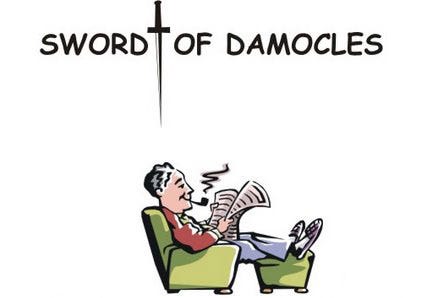I am aware of a condo board that seems to have believed that they could delegate not only the work but their legal responsibilities onto the property manager and the superintendent.
They expect the manager to do all the worrying, do all the work—including patching up the building’s inadequate security procedures and Fire Code violations—and deal with all condo’s problems.
In frustration, one director took it upon himself to conduct the monthly fire extinguishers check-off because the superintendent, who’s job it was, hadn’t done it in months. That was fine. But when that director wrote monthly safety reports, listing all the Fire Code and safety violations he observed, the majority of the board got upset.
They wouldn’t reply when he e-mailed them the Monthly Defect Reports. The management company’s district manager wouldn’t let them be included in the Board minutes.
The treasurer told him that what he was doing was the manager’s job. Let her do it.
The director sent the Board seven monthly reports, all showing a growing number of safety and fire code defects. I guess they thought that if they ignored them, he would give up.
He then sent them this e-mail.
The dog did not bark—the bells did not ring
09 April 2019
To: Directors & management condo corp
From: Concerned Director condo corp
Re: Fire Inspection Company contract
In the short story, Silver Blaze, Sherlock Holmes focuses on a critical piece of evidence; a guard dog that didn’t bark during the commission of the crime.
Nothing so dramatic happened here (for which we are fortunate) but when I was conducting the April Fire Safety Audit, I realized that it had been a long time since I was last woke by the monthly testing of the building’s fire alarm system. (As all of you are aware, I work overnight and sleep during the daytime hours.)
The dog did not bark and the fire alarms did not blare!
So on Thursday 04 April 2019, I asked our manager: “When was the last monthly fire alarm test?” It had not been done since October 2018.
It appears that our corporation did not sign a contract with the Fire Protection company.
When I checked the Fire Protection and Prevention Act on the Internet, I found that our corporation is in violation of the following Sections of the Fire Code:
6.3.2.6 (4) Monthly testing of the fire panel.
6.3.2.6 (6) Weekly checks of the power supply & records kept for six months.
6.4.2.5 (1 & 2) Fire hoses replaced on the racks annually and any folds will not occur
in the same place. (re-racking)
Corrective measures
The director proposed that these two resolutions be considered at the April Board Meeting.
Resolution #1
Whereas we do not have a contract with a fire protection company, be it resolved that the corporation signs a contract with our present Fire Protection Company or with a different one, if deemed prudent, no later than by the end of May 2019.
Resolution #2
Whereas there have been several lapses in the corporation’s ability to monitor legislated safety and fire protection procedures be it resolved that the board authorizes and encourages the forming of a standing safety and security committee made up of interested residents;
And be it further resolved that this committee will report directly to the property manager and be chaired by a member of the board of directors.
And be it further resolved that this committee will make regular reports to the Board of Directors.
The first resolution got passed but the second one was not discussed.
Command responsibility
Sometimes referred to as the Yamashita standard or the Medina standard, and also known as superior responsibility, is the legal doctrine of hierarchical accountability.
The term may also be used more broadly to refer to the duty to supervise subordinates, and liability for the failure to do so, both in government, military law, and with regard to corporations and trusts.
In criminal matters, command responsibility implies a crime of omission.
When it comes to business—and indeed, numerous other aspects of life—being in charge of other people also usually means being responsible for the actions of those people.
In residential housing
If a condo corporation has fire code violations, and someone gets seriously hurt or dies, then the corporation and its directors may be charged if they had, or should have had, knowledge that the violations existed and they ignored them.
I think that our “rebel” director will wait a little and then let the board, and the licenced property managers, know that all of his safety reports and the above e-mail are part of the corporation’s records.
Therefore, they can’t claim that they were not aware that there were safety issues in their condo tower.
Update:
A Toronto Fire Services Inspector announced that he would be conducting a routine inspection of the building. The manager then jumped into action and hired a company to perform an annual fire inspection and she cleaned up some of the records.
When the city’s Fire Inspector conducted his tour, he found four violations that had to be corrected.
Halton Landlord Charged After Basement Fire
A landlord has been charged for fire code violations after a mother and child escaped a basement fire in Halton Hills without serious injury.
https://bit.ly/2vda0Mk
Landlord charged after house fire kills two
A landlord is facing a pair of fire code violations following a fatal blaze in east Toronto that killed two people last week.
Officials say that a couple who lived on the main floor of the home, located near Danforth and Coxwell Avenues, tried to escape the blaze but couldn't make it to the front door.
https://bit.ly/2Zp9GZ0
Landlord Charged with Fire Code Violations
“It is the landlord’s responsibility to install and maintain smoke and CO alarms. Not having working smoke and CO alarms to give people the extra warning time, in the event of an emergency, is inexcusable and will not be tolerated,” said Fire Chief Michael Seth. “Working smoke and CO alarms, along with a practiced escape plan, are essential to ensure people are able to survive a fire.”
https://bit.ly/2ZnoeIz






